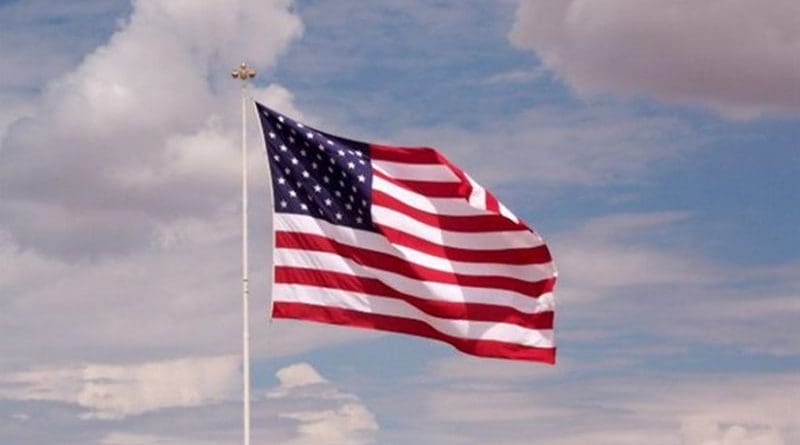Why Arabs In US Are Their Own Worst Enemy – OpEd
By Ray Hanania
The Arab and Muslim community in America has many problems. They are often the same problems that Arabs and Muslims face around the world, including the Arab and Muslim worlds.
In America, many Arabs and Muslims are there physically, but their thoughts, hearts and minds are “back home.” In other words, they pay more attention to the politics of the Middle East than they do to the politics of America.
As a consequence, most Arabs and Muslims who embrace moderation and reject extremism keep quiet. They don’t like what they see, but they do little to change it. Whenever a moderate voice rises amid the despair of the American Arab and Muslim communities, extremist voices shout them down, so the rest of the community learns to accept silence as a response to bullying and intimidation.
I was asked to join a protest a few months ago against Sharon Brannigan, who holds a local elective office in a community with a history of anti-Arab and anti-Muslim incidents, Palos Township.
Brannigan posted a few comments on her Facebook page that were critical of Arabs and Muslims. Of course, Arabs and Muslims in America are hyper sensitive. Every little thing bugs us. In fact, I would argue it is the little things that bother Arabs and Muslims in America more than the big things, because we tend to respond to the little things and shrug helplessly in the face of the major issues.
I read through Brannigan’s comments and felt she was merely expressing strong views on the issue of immigration and used Arabs and the Middle East community as the target of her feelings because that community has a strong presence in her locality.
The activists, many of whom I respect, organized protests against Brannigan demanding that she be thrown out of office. She apologized for her comments, but apologies don’t go far among some Arabs and Muslims.
So I picked up the telephone and I spoke with Brannigan. I could tell that while she had concerns about immigration and the ease at which fanatics, terrorists and criminals of all ethnicities can enter America without being scrutinized — border scrutiny is a fundamental policy of every country, by the way — she didn’t mean to cast aspersions against Arabs or Muslims.
Brannigan issued a new statement and sent it to me. It basically said what I suspected. She apologized, and acknowledged that she had allowed her fears to get the better of her words.
She wrote, “I am not anti-Arab. I am not anti-Muslim. I am not anti-immigrant. I am the granddaughter of immigrants who came to this country from Ireland and Italy through Ellis Island with a dream of prosperity and goodness. I know what racism is and I know what discrimination is. It was not my intent to reflect any of those feelings. Through all the hurt feelings and anger, I believe the issues have been distorted and I unintentionally contributed to that misunderstanding.”
Instead of accepting her apology, the small group of protesters, led by some extremists, stepped up the anger. At board meetings, they yelled, screamed and were incoherently ignorant, making all Arabs and Muslims look uncompromising and stupid.
When I wrote that I accepted Brannigan’s apology as an Arab American who most Americans believe is Muslim — I am Christian but I feel I am “Muslim by culture” — some protesters started yelling at me, inundating me with ugly and anonymous email hate.
Among the many problems in the Arab World (and among some Muslims), intolerance of Christians is a plague. We are attacked, vilified, bullied and told, as I was: “You have no right to speak for our community.”
But I am used to it. I know these extremists represent a small segment of our society in America. The majority of Arabs and Muslims who are moderate, reasoned and have commonsense are intimidated by the bullying.
Forgiveness is not just a trait among Christian Arabs. It is a trait among true Muslims, too.
Forgiving someone who says something stupid can be a first step in moving forward and building something, rather than being mired in the mud of endless conflict.
That’s why I believe in the two-state solution for the Israeli-Palestinian conflict, and support compromise. While fighting for “100 percent victory,” those who are suffering continue to suffer. Those who say stupid things continue to say stupid things.
Ironically, suffering is not what the Arab and Muslim community in America can really claim. Most of the community is wealthy. Their children get good education. They have strong businesses and they are engaging at every level of American society, although the American news media focuses on news that makes us look bad or casts us only as “victims.”
Yet Arabs and Muslims in America are denied equality in government services, and we are unfairly singled out for criticism, exclusion and marginalization. We’re not even counted in the US census, which decides how much public funding recognized ethnic groups receive.
Arabs and Muslims in America are more than just “victims.” We deserve more respect and recognition for our achievements, not just from American society as a whole, but from ourselves as well.
There are so many bigger issues to raise and to focus our collective energy on rather than to refuse to accept an apology from someone accused of racism.
What Arabs and Muslims are lacking in America is leadership that embraces moderation and rejects extremism. We need leaders who are willing to courageously speak out against the fanatics who embarrass us, undermine us, and distract us from the real issues holding our community back.

